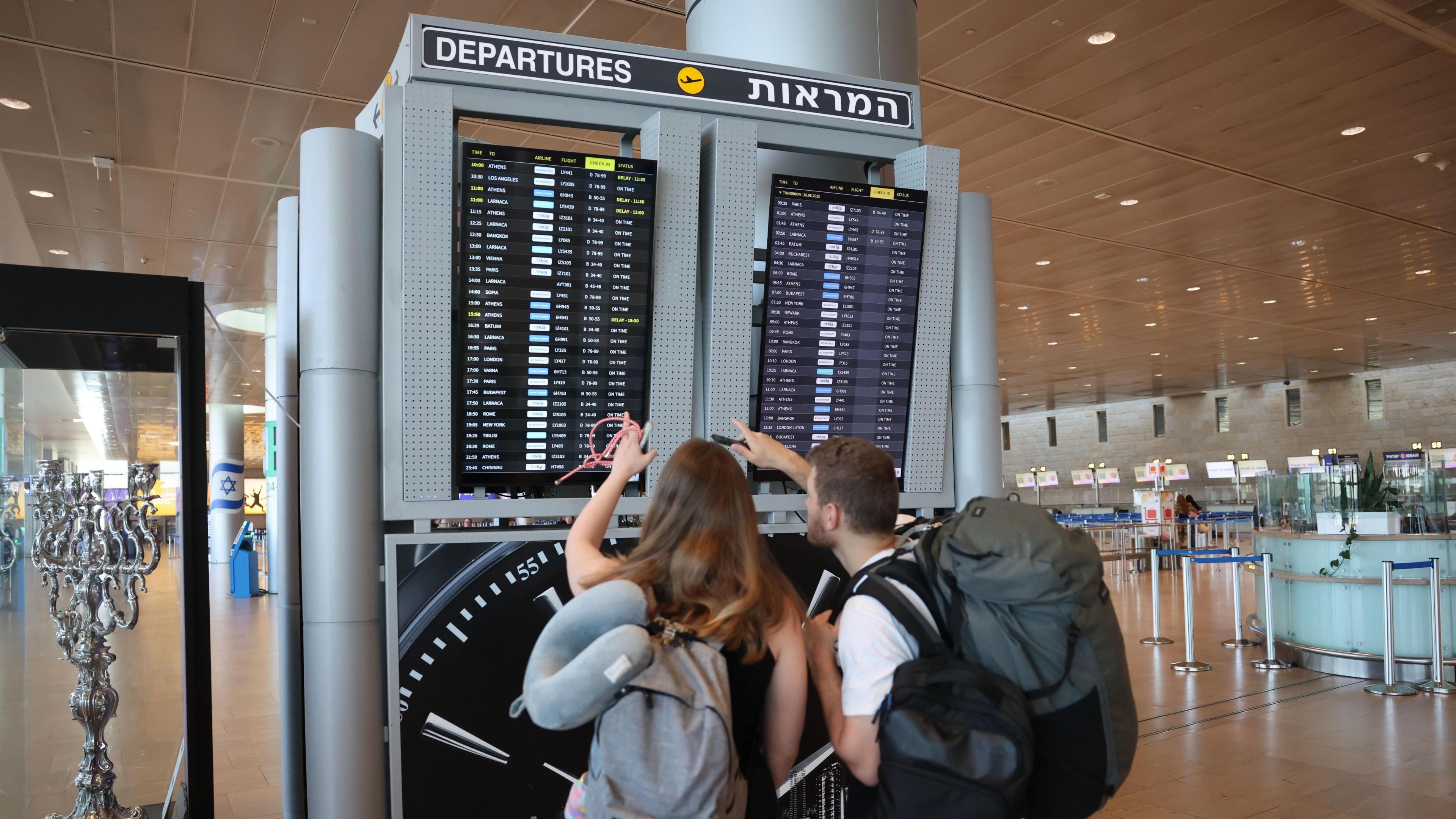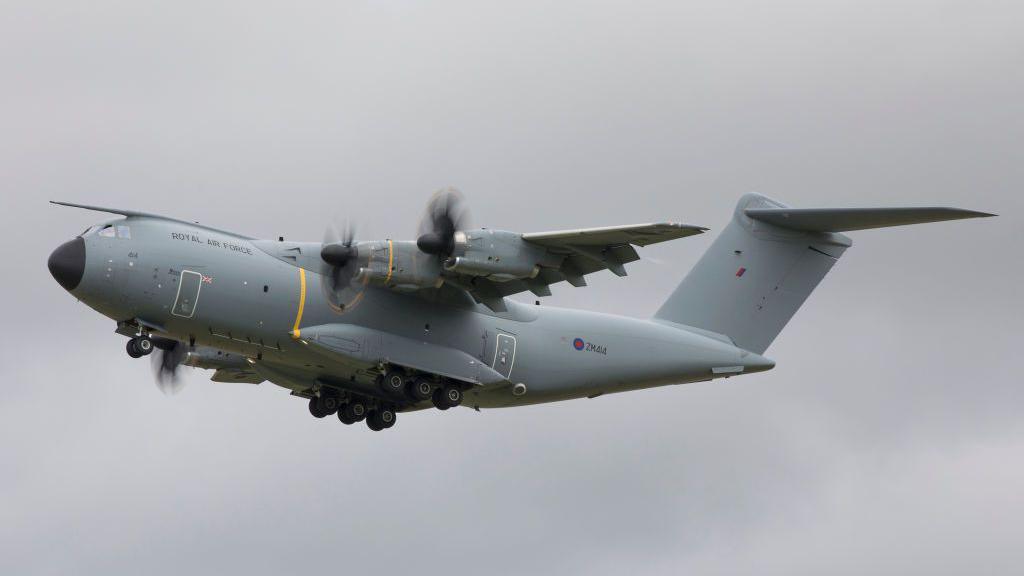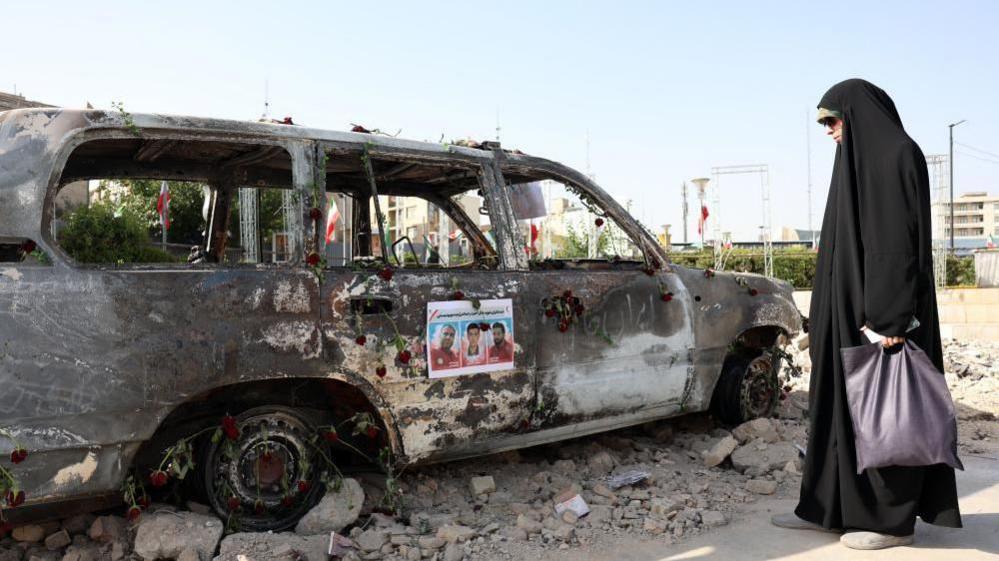UK eases Israel travel advice as evacuation effort winds down

Five flights have already evacuated Britons out of Israel since the conflict with Iran
- Published
The government has loosened its travel advice for Israel, as a final evacuation flight for British nationals is set to depart from Tel Aviv on Sunday.
The move comes after Israel reopened its skies for commercial air travel following a ceasefire agreement that ended a 12-day conflict with Iran.
After missile exchanges between the two countries began, the foreign office had advised against all travel to Israel and the Occupied Palestinian Territories.
On Friday, the government eased its guidance to advise against all but essential travel to most parts of Israel, the West Bank, and the Golan Heights.
It still advises against all travel to parts of northern Israel, the West Bank and the Golan Heights, and to all of Gaza.
The foreign office said a sixth evacuation flight from Israel for British nationals was scheduled for this weekend and would be the last, amid falling demand as commercial options increase.
"The safety and security of British nationals is our top priority," a spokesperson said.
"The government has organised multiple flights evacuating British nationals and their dependants from Tel Aviv, prioritising the most vulnerable. These flights will end if there is not sufficient demand."
The UK has already stopped providing onward transport options for British nationals who have crossed Israel's land borders into Jordan and Egypt.
A US and Qatar-brokered ceasefire between Israel and Iran took effect on Tuesday, but in its advice to travellers, the foreign office acknowledged the situation was "fragile... with the potential to deteriorate further".
The government said it would keep the situation under review.
The conflict began on 13 June when Israel bombed nuclear sites and military targets in Iran, prompting Tehran to respond with missile strikes.
Following 12 days of back-and-forth attacks, Iran's health ministry said 610 people had been killed, and Israel's health ministry said 28 people had been killed.
British nationals left stranded when Israeli airspace was closed due to the conflict were urged to register their presence with the UK government.
On Monday, Downing Street said about a quarter of the 4,000 people who had registered their presence in Israel or the Occupied Palestinian Territories had asked for a seat on an evacuation flight.
Related topics
- Published23 June

- Published24 June

